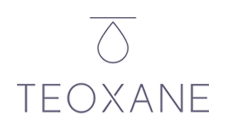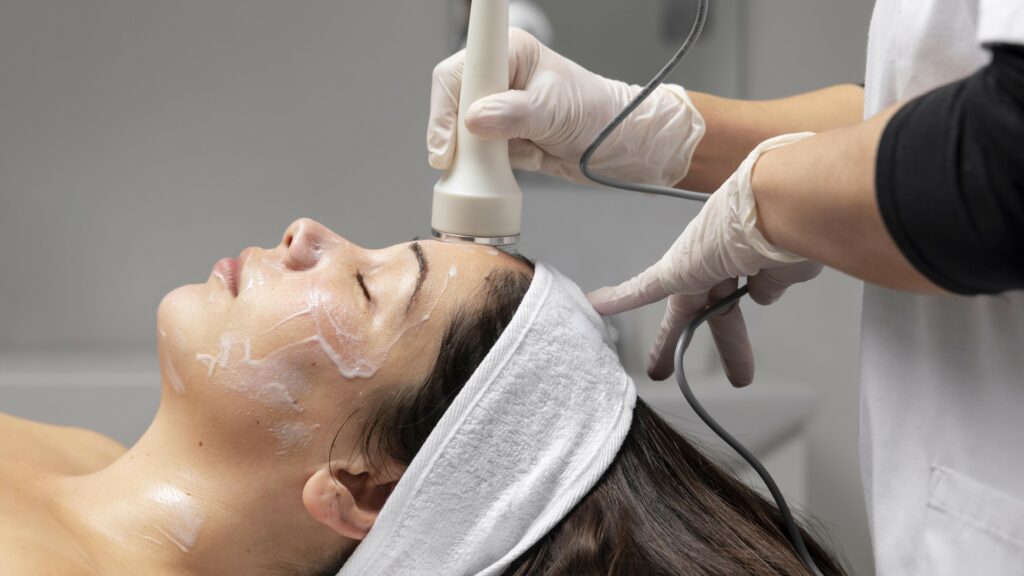-
Cosmedocs| Non Surgical
-
COSMESURG| Surgical
-
HARLEY STREET| Skin Care
FORMULATIONS -
| Skin Bar Clinic
 GLOW & GO
GLOW & GO
Which business structure will prove best for your aesthetic business?
When you start your own aesthetic business, there are several things to take into consideration which fits into your budget. One of the most important decisions to make is which business structure to choose for your business. This will also help you to determine the tax which you will be paying for your business in future.
In order to decide which structure will work best for your business, here is an overview of some of the well-known business structures.
Sole trader
As the name indicates, sole trader is a business that is operated by a single person. He solely operates the business with complete authority, take all decisions and responsibility. Due to its small size it can also be referred to as the ‘micro business structure’. Numerous skilled tradesmen like plumbers, electricians, carpenters etc use this structure to operate their businesses.
In this structure, yearly account of sales, profits and expenses is conducted for the income tax and insurance. If the annual turnover of business exceeds the limit set by HMRC, you need to pay the VAT as well.
Pros and cons
Some of the pros and cons of this structure are following:
- Complete control and authority: you will have complete authority over the operations of the business, it’s planning, expansion of size and the rate at which you wish to expand it. However, there are certain pitfalls for this approach because you will be solely liable for all the business ups and downs and other liabilities.
- Easy set up: if you wish to open your independent aesthetic clinic, the process is quick and easy to set up. You only need to inform the Inland Revenue within 3 months of setting up that you are solely operating a business. If you fail to do so within time it would result in charges and penalties.
- Less start-up cost and regulations: as compared to other types of business structures, the start-up cost is less. You only need registration with the Inland Revenue for each financial year. All your financial information remains private with you and you do not need to register your company each year as with other limited companies.
- No need for management or staffing: as you will be working independently, the profits will remain with you. Although it sounds great but it also has a drawback. In case you need to go on a vacation or become ill, you need to take off from work which means that your business will remain close for that period. So you have to keep some funds aside for such emergency situations.
- Low costs of accounting: Due to less accounts and taxation related work your cost of accounting services tends to be less. You need to maintain a profits, accounts and cash flow statements for the accountants to check and to manage your business cash flow on regular basis.
Partnership
This business is based on the partnership between two or more than two persons. Each partner in the business shares the same level of authority to operate the business and equally involves in the day to day activities of the business. Every partner in the business is held equally responsible for any decision regarding the business as well as for profits and loss.
Partnership business can be developed with anyone, but it is highly recommended that you have a proper partnership contract created by a lawyer which should be signed by each partner and a business agreement can also be developed in case someone intend to leave the business partnership in future.
Pros and Cons
Some of the pros and cons of partnership structure are following:
- Can be easily established: it is quite easy to create a partnership but better if created with like minded people in the same profession such as two or more aesthetic practitioners can create a partnership to operate aesthetic clinic. You need to ensure that in partnership everyone should have clear directions regarding their roles. The best way is to develop a partnership agreement which specify which course of action to adopt in certain circumstances.
- Funds can be raised easily: the partners can contribute their own funds which increases the funds for the business. The profits then need to be split equally or according to the decided percentage in accordance with their contributed funds. However, there can be tension among the partners if one invested more time than the others so this is required to be taken into account while setting up a partnership.
- Diverse skills set: every partner in the business has his/her own skill set and strengths which will be great for moving the business forward. For instance, one of the cosmetic practitioners can have better skills at administering injectable treatments while other is better at performing non-surgical PDO threadlift treatment or nose job. But you need to take into consideration that one or the other partner may not want to take risks which can decrease the business flexibility and slow down the process of decision making.
Limited companies
 In this type of business model, you can keep your personal assets and finances separate from your business while having a separate bank account for that. This implies that at any stage if business is in the situation that requires termination, then you do not need to use your personal finances to pay the outstanding debts.
In this type of business model, you can keep your personal assets and finances separate from your business while having a separate bank account for that. This implies that at any stage if business is in the situation that requires termination, then you do not need to use your personal finances to pay the outstanding debts.
You can choose from two kinds of limited companies:
- Public Limited Company (PLC): these are enlisted in the stock exchange and the public is allowed to buy its shares. The profits and losses made during business are made public in the stock exchange. At least two directors are required to operate a public limited company and it is usually for very large scale businesses with a turnover of £20 million or more.
- Private Limited Company (LTD): In this the shares are not traded publically and can be operated by a single director. This type of business is usually family operated or business partners can also get the protection of limited company to achieve security over partnership.
The Private as well as Public Limited companies need registration with the Companies House in order to legally start the business. The company will need to pay the taxes for its trading profits on products and services its offering and the profit dividend will be paid to the public share holders.
Pros and Cons
- Provides financial security: this business model provides financial security as the directors do not need to pay any liabilities or debts out of their own pocket. Whatever debt will be incurred it will be paid by all the share holders according to their levels of investment. In case of limited company, there are certain restrictions on the selling of shares for raising the capital for business as it will only be available if anyone wishes to invest in the shares.
- Exists as separate entity: one of the biggest plus point of this business model is that, the limited companies can exist and operate as a separate distinct entity. Employees also have job security but sometimes dispute can arise between the directors or share holders regarding decision making for the company.
- Do not always require office site: when you start off your limited company, you may not need a big space to operate the business until you expand it. You can even operate it from your own premises or house while claiming the cost of electricity, heating and other bills from your company. But you should keep in mind that the limited company accounting and record keeping is much more complicated, time consuming and need expert advice and is essential.
- Authority and ownership: The main stakeholders of limited companies are the Directors of the company which means that the authority and ownership lies in their hands. This means that quick and effective decisions can be made but it can also make the decision making process difficult due to certain obstacles and unforeseen circumstances. Disputes can even occur between the directors as well as share holders regarding the decisions about the company. The increasing number of investors means more people involved in decision making process thus slowing down the decision making process.
How to make the right decision for your aesthetic business?
There can be no right or wrong decision when it comes to deciding about the business structure as it depends on the individual circumstances, how you wish to grow your business and how much effort you are ready to make for it. Every business model has its own pros and cons so in order to make the right decision, you should;
- Do lots of market research: about all the business structures and create understanding about all the business models which will help you to make the right choice.
- Seek professional advice: if you have lots of information but still not able to decide which business structure to choose, it’s better to seek professional advice to choose the best option.
Lesley Fraser
Related Posts
We use cookies to give you the most relevant experience, Cookie Policy.
See What Our Fellows Have Been Up to Recently
Historically, aspirating before administering certain injections, especially intramuscular ones, was standard practice. The main reason for aspiration was to avoid injecting medication directly into the bloodstream, which could cause adverse reactions or reduce the effectiveness of the medication.
However, the necessity and relevance of this practice have been debated in recent years. Some recent guidelines and studies suggest that aspiration may not be necessary for all types of injections. For example, it’s generally agreed that aspiration is not required for subcutaneous injections because there are fewer large blood vessels in the subcutaneous tissue that could be accidentally punctured. For intramuscular injections, the necessity of aspiration might depend on the injection site. For instance, aspiration is still recommended by some for injections in areas where large blood vessels are present, but it might be considered unnecessary for other sites.
The shift in practice is partly due to a better understanding of anatomy and the low risk of injecting into a blood vessel in certain areas, along with a desire to streamline the injection process and reduce patient discomfort. However, opinions and practices vary, with some healthcare professionals continuing to advocate for aspiration as a precautionary measure, while others view it as an unnecessary step for most injections.
#aestheticmedicine #dermalfiller #aceconference

Understanding depth, volume, and pressure can enhance a practitioner’s skill set, enabling them to provide more valuable services to their clients using their existing tools. #aestheticmedicine #dermalfillertraining #wrinklefree

Mastering hand stability isn’t magic, it’s a mix of experience & targeted learning 🎯 Our students get ahead with specialized techniques, paving the way for precise injections! 💉#SkillDevelopment #FutureHealthPros
.
.
.
.
.
#dermalfillertraining #aestheticmedicine #botoxtraining

Virtually any area can be reached using a cannula #fillertraining #aestheticmedicine #hsifellowprogram

“Unlock Your Aesthetic Potential with Harley Street Institute’s Fellowship! 🌟 Elevate your skills in aesthetic medicine through our intensive hands-on training in Botox and Dermal Fillers. Get ready to sculpt beauty, one injection at a time! 💉✨ Join us for a transformative learning journey that takes you beyond the classroom and into real-world expertise. Are you ready to master the art of enhancing natural beauty? 💫 #HarleyStreetFellowship #AestheticMedicineMastery #SculptingBeauty”

Link in bio
"Unlocking the Secrets of Masseter Botox: Empowering smiles, one injection at a time! 💉💪 Join me on an exciting journey as we delve into the world of Masseter Botox. Learn the art and science behind this transformative procedure, and discover how it can redefine facial aesthetics. Don`t miss out on this opportunity to enhance your skills and expand your practice. Let`s reshape faces and build confidence together!
Link in bio.
#MasseterBotoxCourse #FacialAesthetics #TransformativeProcedures #SmileEnhancement #ContinuingEducation
#aestheticmedicine

💭Have You Ever thought :
👉🏼What lies beneath the orbicularis oculi ?
👉🏼Why do I need to have the correct depth ?
👉🏼How to avoid an asymmetric smile, periorbital edema or a shelf like look at the lid/cheek junction ?
⚠️We all know that when treating crows feet, we are administering botox into the orbicularis oculi, and that there are complications but which and how?
‼️Too inferior or deep🟰 an asymmetric smile
(you’ve hit the zygomaticus minor muscle and major if you’re really too inferior!)
‼️Too medially 🟰 periorbital edema
(and you’re the periorbital region )
Located just underneath the skin, the orbicularis oculi has multiple origin and insertion points. A paired muscle, that overlies the periorbital region in a circular manner.
⚠️The wrong location, the wrong depth can result you injecting botox into a completely different muscle.

Welcome to the under eye region, an area of the face that can often show signs of aging such as wrinkles, hollows, and dark circles. Today, I want to share with you how fillers can be used to address these concerns by injecting them into different layers of the skin.
Using a needle, we can inject fillers into the dermis layer of the skin to improve the appearance of fine lines and wrinkles. This can help to smooth out the texture of the skin and create a more youthful and refreshed look. However, it’s important to note that injecting fillers into this layer requires specialized training and experience to ensure safe and effective results.
In addition to the dermis layer, fillers can also be injected into the bone to help address deeper hollows and shadows under the eyes. This technique requires a higher level of expertise as it involves precise placement of the filler to achieve the desired outcome.
Lastly, fillers can be injected into the fat compartment of the under eye region using a cannula. This method can help to add volume and smooth out any irregularities in the fat pads under the eyes. Again, specialized training and experience are crucial for safe and effective results.
Overall, the use of fillers in the under eye region can provide a non-surgical solution to address signs of aging and enhance the appearance of the face. However, it’s important to seek out a qualified and experienced provider who has received proper training in the use of fillers in this delicate area.
If you’re interested in learning more about how fillers can benefit you, please don’t hesitate to reach out and schedule a consultation. Let’s work together to help you achieve your aesthetic goals!
#cosmedocs #harleystreetinstitute
.
.
.
.
#lifestyleblogger
#selfcarematters #aestheticmedicine
#beautytips
#skincarecommunity
#antiagingtips
#makeuptutorials
#selfcarelove
#aestheticbeauty
#lifestyleinspo #lifestyleblogger
#selfcarematters #dermalfillertraining
#beautytips
#skincarecommunity
#antiagingtips
#makeuptutorials
#selfcarelove #dermalfillers
#aestheticbeauty
#lifestyleinspo
#antiagingsecrets
#harleystreet #drahmedhaq #oxforduniversity
#harleystreetinstitute

The mentalis muscle is a facial muscle located in the chin area. It originates from the mandible and extends downward to the skin of the chin. The primary function of the mentalis muscle is to control the movement and position of the lower lip and the skin of the chin. It plays an important role in activities such as speaking, smiling, and pouting.
In addition to its role in facial expression, the mentalis muscle also helps to maintain the position of the lower front teeth and the shape of the lower lip. Dysfunction or hyperactivity of the mentalis muscle can lead to the development of chin wrinkles, which are vertical lines that appear on the skin of the chin. Understanding the anatomy and function of the mentalis muscle is important for healthcare providers when performing aesthetic procedures in the chin area.
Online Course With Video Demo
www.harleystreetinstitute.com
#botoxtraining #mentalistreatment

#Repost @dranabilamzavala with many thanks 🙏 and best wishes for the future.
Esta semana tuve la oportunidad de estar en Londres en una de las mejores clínicas con los mejores equipos de Medicina Estética en el mundo, perfeccionado técnicas de Rinomodelación con el Dr.Ahmed Haq.
——
@drahmedhaq You are simply incredible, thanks for the hands on and all the new techniques you shared. @drahmedhaq @harleystreetinstitute @cosmedocs
.
.
.
#aestheticmedicine #dermalfillertraining #nosejob #medicaltraining #plab #harleystreet #10harleystreet #aesthetics

Huge Congratulations to Mariana, on completing her foundation course in Aesthetics Medicine with us here at Harley Street Institute. 🥇✨
This combined course covers the necessities required for daily clinic practise, whether starting out or refreshing skills. Our small group training (4:1) provide unparalleled mentorship at any of our training days.
#cosmetictraining #aesthetics #hsi #cosmetics #cosmedocs #harleystreetcourses #foundationcourse #london

Only courses with true mentorship. #botoxtraining #dermalfillertraining #aestheticmedicine #hsifellowprogram #harleystreetfellowship

Huge congratulations to @onemedicalclinic for completing her Fellowship in aesthetic Medicine with us at Harley Street Institute 💫💫✨ We are so proud of having you 🥰
#Repost
Dr Crystal:”When I completed medical school 13 years ago, one of my cherished mentors gave me advice that has stayed with me for life - “never stop learning; it makes the difference between being good and being great."
From my years of Ophthalmic-surgical training to becoming a student of Public Health to my experience as a legislator in Parliament to operating my own
Medical and Aesthetic Medical practice, the lessons learned have been varied and valuable. 🤓
On this occasion my commitment to lifelong learning led me to Harley Street, London. I didn’t just want to be a good injector, I needed to be a great one so I needed to go where the great injectors were. 💉
Every day for the last two months I was immersed in one-on-one intensive training with the aim of mastering my injectable skills and thanks to the incredible team of doctors and trainers at @cosmedocs
@harleystreetinstitute l am proud to say Mission Accomplished! “

Huge Congratulations to Dale Rae for completing the Certificate in Aesthetic Medicine training program. 💫💫
💉The 3-day Aesthetic Medicine Certificate is tailored towards new practitioners who are ready to kick-start their career in Aesthetic Medicine. It aims to provide an in-depth understanding of the Layers of the Skin and Biological Ageing Process. The package also includes our most popular Foundation Botulinum Toxin and Dermal Fillers course, including an introduction to using cannula.
💉It is an Intense 3-day course incorporating essentials basic and advanced botox and dermal filler procedures combined with popular skin treatments perfect for the beginner all-rounded aesthetic practitioner.
You will be provided direct mentorship by our various cosmetic practitioners who are experts in performing their respective aesthetic treatments.
💉Small group training under the direct supervision of our experienced aesthetic trainers. Master procedures to an advanced level. Learn theory, consultation methods and manage client expectations as well as complications.
🙌 DM for more details. #aesthetic #dermalfillers #detmalfillertraining

Aesthetic medicine is an art. It`s not enough to know facial anatomy or to be a good injector. The best aesthetic doctor has an artistic eye. Sometimes this is a skill that can be developed over years. Being able to assess a fa ce within seconds of walking into a room. Knowing exactly how injectables can be used for subtle and natural results.
The end result should not be obvious to an untrained eye.
It`s such a shame to see overfilled faces exaggerating proportions. When really, the main aims are to restore volume lost or correct natural imbalances.
#aestheticmedicine #dermalfillers #beauty
Repost @cosmedocs

Huge Congratulations to @erikatydermatology for completing her Fellowship in Aesthetic Medicine with us at the Harley Street Institute 💫💫💫
Our Aesthetic Fellowship is the pinnacle of training for those seriously interested in escalating their careers.
.
Our fellows are taken on board within clinic over 3 months with weekend workshops, 1-1 mentoring, treatment log book and clinical assistance.
.
Following on from this they have the opportunity to have Independent Fellow Clinics to improve their confidence with patient consultation and individual treatment planning.
.
We believe that this is the future of aesthetic traning to ensure that practitioners have captured all the essential skills for successful careers.
.
We have been extremely proud of our old fellows, many who have moved on to now work with some of the most prestigious clinics in London.
.
Next enrolment periods: TBC
.
To find out more information or to apply, please email your CV to [email protected]
.
#thefellowship #harleystreetinstitute #doctorsanddentists









Note: if you did not get the email, please check spam/junk folder








